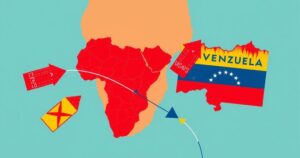Concerns Emerge Over Cobalt Production and Child Labor in the Democratic Republic of Congo

The U.S. Department of Labor has labeled cobalt from the Democratic Republic of Congo as potentially tied to forced and child labor, sparking concern among local authorities over possible negative impacts on investment. In 2023, the DRC produced 170,000 tons of cobalt, yet fears persist regarding the sustainability of this output amid international scrutiny of labor practices.
In September, the U.S. Department of Labor placed the cobalt mined in the Democratic Republic of Congo (DRC) on its list of goods potentially produced using forced or child labor. This designation has elicited significant reactions from both government officials and non-governmental organizations within the nation, which is recognized as the foremost global producer of cobalt. The DRC produced a substantial 170,000 tons of cobalt in 2023, thereby solidifying its leading position in this critical mineral sector. However, there is a growing anxiety among Congolese authorities and civil society that this U.S. action may deter foreign investment, which is vital for the country’s economic development. In response to the concerns raised by the U.S. classification, the Congolese government has emphasized its commitment to improving the cobalt supply chain and ensuring ethical practices in mining. A government spokesperson conveyed disappointment regarding the U.S. decision, indicating that it fails to acknowledge the progress made in enhancing labor practices within the industry and urged international partners to bolster their technical and financial support to reinforce these efforts.
The cobalt supply chain in the Democratic Republic of Congo has been under intense scrutiny due to allegations of child labor and unsafe working conditions. Cobalt is an essential component in the production of rechargeable batteries, thus fueling global demand. The DRC accounts for a substantial portion of the world’s cobalt supply, leading to heightened interest from multinational corporations. Nonetheless, the labor practices within this industry have prompted international concern, particularly among human rights advocates. The U.S. Department of Labor’s recent designation of DRC cobalt signifies an increasing awareness and response to these labor issues, calling attention to the complexities at play in the global supply chain.
The U.S. Department of Labor’s classification of Congolese cobalt highlights significant ethical concerns regarding labor practices in one of the world’s most critical sources of this mineral. While the Congolese government expresses its commitment to addressing these issues, the potential for diminished foreign investment looms large as international stakeholders react to these proclamations. The necessity for increased technical and financial assistance from global partners is crucial for the DRC to continue sustaining its cobalt production while striving to improve labor conditions in its mining sector.
Original Source: www.africanews.com








